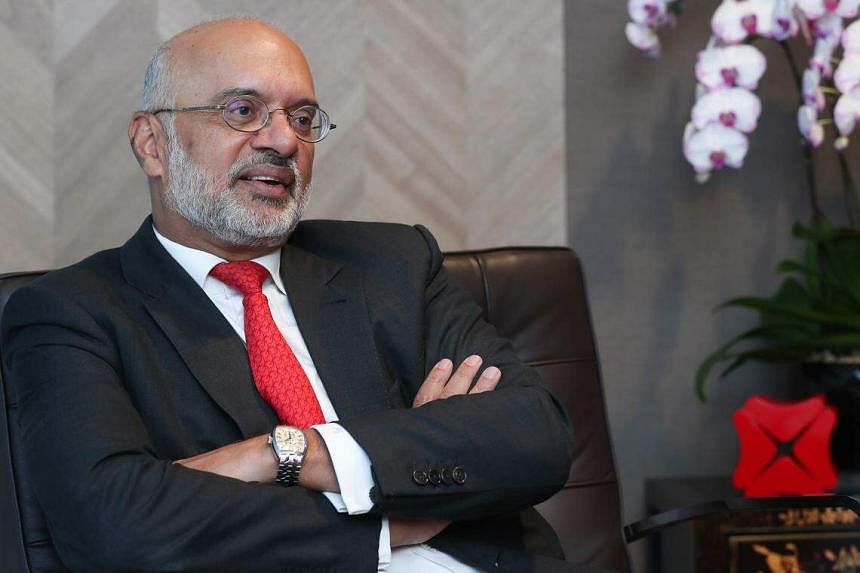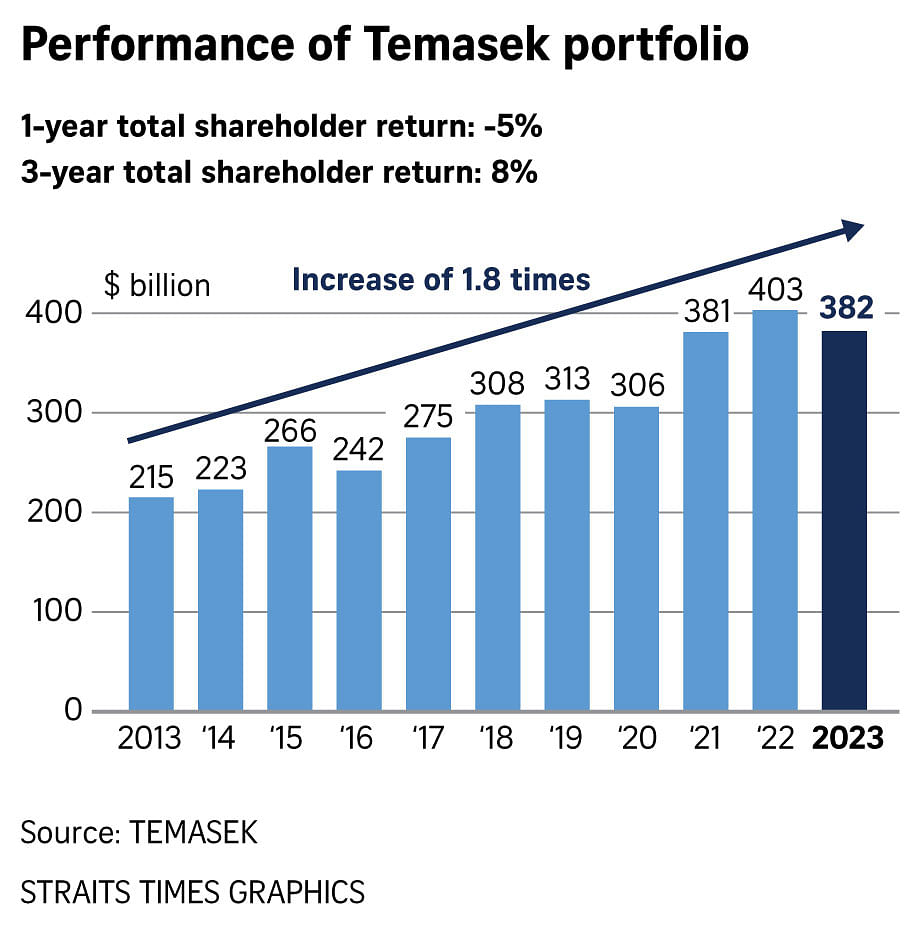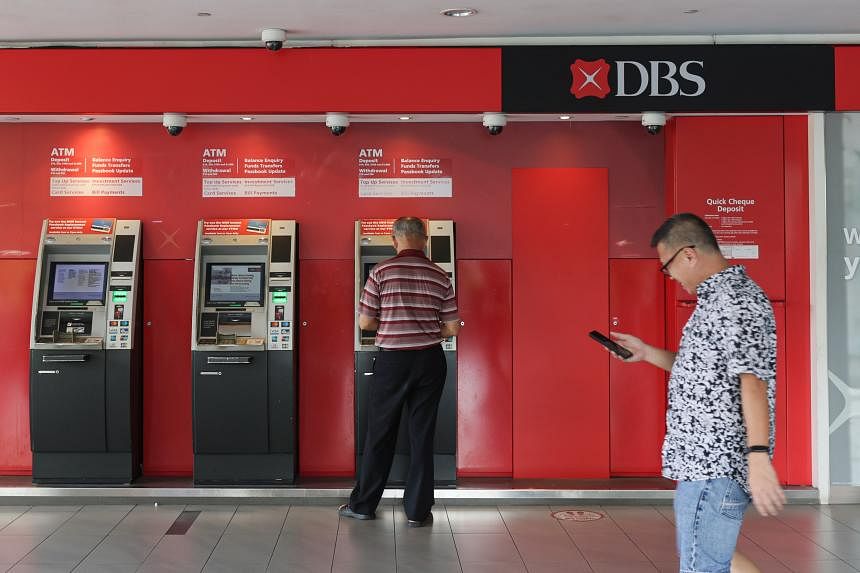- Joined
- Jul 25, 2008
- Messages
- 15,323
- Points
- 113
Iron rice bowl #1: Piyush Gupta, CEO of DBS Bank.
Quote: “I’m a firm believer in the fact that if you start penalising people every time something goes wrong, you will never build the kind of culture you want to build,” he said. “The culture of risk-taking, entrepreneurship and winning.”
Does not believe in accountability.
Use culture as an excuse not to fire.
In doing so, also building a moat for his own job and CECA foreign talent: should not fire the CEO, he is trying to build a culture. Should not fire foreign talent, can't find such talent from Sinkies.

Hubs like Dubai can act as a neutral player in a multipolar world, said DBS CEO Piyush Gupta. PHOTO: BT FILE
MAY 10, 2023
SINGAPORE - DBS Group Holdings is considering an expansion in Dubai, making South-east Asia’s biggest lender the latest financial company to explore scaling up in the Middle Eastern business hub.
“We’re revisiting the thesis that there is real opportunity to do more stuff out of Dubai and this region,” chief executive Piyush Gupta said on Tuesday in an interview with news anchor Yousef Gamal El-Din at the Dubai FinTech Summit.
The Singapore-based lender’s presence in the region is limited and “there’s an opportunity to scale it up”, he said.
Mr Gupta’s remarks underscore the growing importance of Dubai, which is emerging as a favoured destination for hedge funds and financial firms, drawn by its ease of doing business, tax-free status and its allure as a nexus for global travel.
Hubs like Dubai can act as a neutral player in a multipolar world, being able to mediate flows from the West and the East, Mr Gupta said.
GoldenTree Asset Management recently joined a cohort of hedge funds including Millennium Management that have opened offices in the city.
Elsewhere, some of the private equity industry’s biggest names are expanding in the Middle East to develop closer ties with the region’s deep-pocketed investors and source deal-making opportunities.
The bank was slapped with higher capital requirements after the Monetary Authority of Singapore called the repeated inconveniences caused by the disruptions “unacceptable”.
Two earlier incidents involved software glitches, Mr Gupta said.
“The most recent thing was just coincidental,” he added, saying the bank’s infrastructure is robust.
In 2021, the bank suffered one of its worst digital disruptions in the past decade.
In March 2023, DBS’ digital banking services in Singapore were disrupted for about 10 hours. Just over a month later, its digital systems were again disrupted for 45 minutes, according to the bank.
“I’m a firm believer in the fact that if you start penalising people every time something goes wrong, you will never build the kind of culture you want to build,” he said. “The culture of risk-taking, entrepreneurship and winning.”
BLOOMBERG
Quote: “I’m a firm believer in the fact that if you start penalising people every time something goes wrong, you will never build the kind of culture you want to build,” he said. “The culture of risk-taking, entrepreneurship and winning.”
Does not believe in accountability.
Use culture as an excuse not to fire.
In doing so, also building a moat for his own job and CECA foreign talent: should not fire the CEO, he is trying to build a culture. Should not fire foreign talent, can't find such talent from Sinkies.
DBS considering expansion in Dubai, CEO Piyush Gupta says

Hubs like Dubai can act as a neutral player in a multipolar world, said DBS CEO Piyush Gupta. PHOTO: BT FILE
MAY 10, 2023
SINGAPORE - DBS Group Holdings is considering an expansion in Dubai, making South-east Asia’s biggest lender the latest financial company to explore scaling up in the Middle Eastern business hub.
“We’re revisiting the thesis that there is real opportunity to do more stuff out of Dubai and this region,” chief executive Piyush Gupta said on Tuesday in an interview with news anchor Yousef Gamal El-Din at the Dubai FinTech Summit.
The Singapore-based lender’s presence in the region is limited and “there’s an opportunity to scale it up”, he said.
Mr Gupta’s remarks underscore the growing importance of Dubai, which is emerging as a favoured destination for hedge funds and financial firms, drawn by its ease of doing business, tax-free status and its allure as a nexus for global travel.
Hubs like Dubai can act as a neutral player in a multipolar world, being able to mediate flows from the West and the East, Mr Gupta said.
GoldenTree Asset Management recently joined a cohort of hedge funds including Millennium Management that have opened offices in the city.
Elsewhere, some of the private equity industry’s biggest names are expanding in the Middle East to develop closer ties with the region’s deep-pocketed investors and source deal-making opportunities.
Digital woes
Separately, Mr Gupta said the bank is reviewing its infrastructure for ways to improve its recovery capabilities, in his first public comments after the most recent disruption to digital banking services.The bank was slapped with higher capital requirements after the Monetary Authority of Singapore called the repeated inconveniences caused by the disruptions “unacceptable”.
Two earlier incidents involved software glitches, Mr Gupta said.
“The most recent thing was just coincidental,” he added, saying the bank’s infrastructure is robust.
In 2021, the bank suffered one of its worst digital disruptions in the past decade.
In March 2023, DBS’ digital banking services in Singapore were disrupted for about 10 hours. Just over a month later, its digital systems were again disrupted for 45 minutes, according to the bank.
“I’m a firm believer in the fact that if you start penalising people every time something goes wrong, you will never build the kind of culture you want to build,” he said. “The culture of risk-taking, entrepreneurship and winning.”
BLOOMBERG
Last edited:





